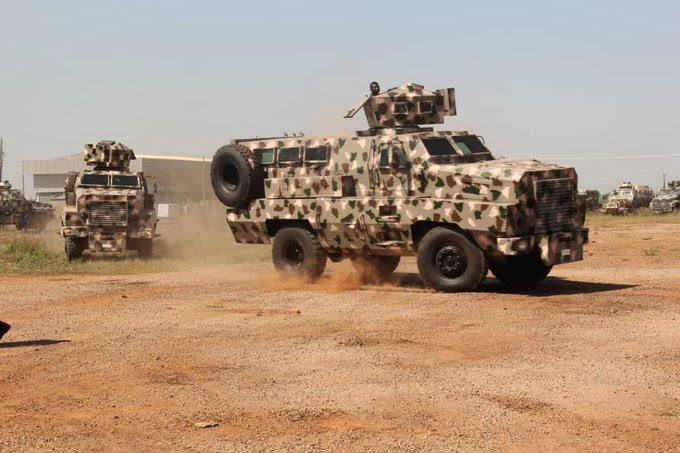Insecurity: Over 1,000 Killed In Nigeria In April, 406 Others Kidnapped

Analysis of data compiled by the Council on Foreign Relations in the Nigeria Security Tracker (NST) has revealed that at least 1,032 people lost their lives to insecurity in the country last month.
Across Nigeria, there were at least 229 violent incidents between April 1 and 30, the tracker showed.
Among the deceased were 592 civilians and 145 security officers. Members of armed groups, including 87 Boko Haram insurgents, six robbers, and 202 others were also killed.
The rate of abductions in the period was also alarmingly high with 406 people falling victim.
The highest civilian casualty was recorded on April 8 in Konshisha Local Government Area of Benue State where over 70 people were reportedly killed by invading Nigerian soldiers.
“Our unarmed people are being killed intentionally in large numbers by armed personnel of the Nigerian Army,” announced Elder Tyoh Jude of the Shangev-Tiev Assembly (STA).
“Presently, over 70 persons are reported dead and more than 100 people are missing, mostly women, children and the elderly and hundreds of thousands displaced with its attendant humanitarian consequences.”
This claim was, however, later dismissed by the state governor, Samuel Ortom.
On Wednesday, April 21, between 50 and 90 were killed by terrorists in three Local Government Areas in Zamfara State: Gusau, Maru, and Zurmi. Most of the victims were members of Yankasai, a local vigilante group that attempted to beat back the invaders.
“Police in the state have confirmed the incident but said troops could not reach out to the scene of the attack as they were not informed in good time due to a lack of mobile phone network in the affected areas,” reported ThisDay newspaper.
Huge fatalities among officials of the Nigerian Armed Forces were also common last month.
The darkest day was Sunday, April 25, when 33 soldiers were reported killed following a terrorist invasion of a military base in Mainok, Borno State. The same day, at least 20 other soldiers who were on their way to provide reinforcement in Mainok lost their lives to accidental air bombardment by an Air Force fighter jet.
Last Tuesday, reacting to the spate of attacks, the House of Representatives resolved that “the president should immediately declare a state of emergency on security so as to fast track all measures to ensure the restoration of peace in the country.”
That same Tuesday, President of Nigeria Muhammadu Buhari looked to the United States for support in tackling growing insecurity in the country, which he said was of great concern to his administration.
He then urged the U.S. to “consider relocating AFRICOM [Africa Command] headquarters from Stuttgart, Germany to Africa and near the Theatre of Operation,” a move that has been criticised by analysts including senior researcher at the Lake Chad Basin Programme Dr Akinola Olojo and a former federal lawmaker Shehu Sani.
“It is portraying the leadership in Nigeria as more or less shifting the burden of responsibility for ensuring the security of citizens,” said Dr Olojo.
NST has documented politically and economically motivated violence in Nigeria since 2011 using press reports but warns that its figures are not definitive partly because of underreporting.
HumAngle observed in January that, last year, only four per cent of terrorist attacks, 60 per cent of civilian fatalities, and 36 per cent of abductions in Borno State, northeast Nigeria, were reported by media organisations.
Support Our Journalism
There are millions of ordinary people affected by conflict in Africa whose stories are missing in the mainstream media. HumAngle is determined to tell those challenging and under-reported stories, hoping that the people impacted by these conflicts will find the safety and security they deserve.
To ensure that we continue to provide public service coverage, we have a small favour to ask you. We want you to be part of our journalistic endeavour by contributing a token to us.
Your donation will further promote a robust, free, and independent media.
Donate HereStay Closer To The Stories That Matter




